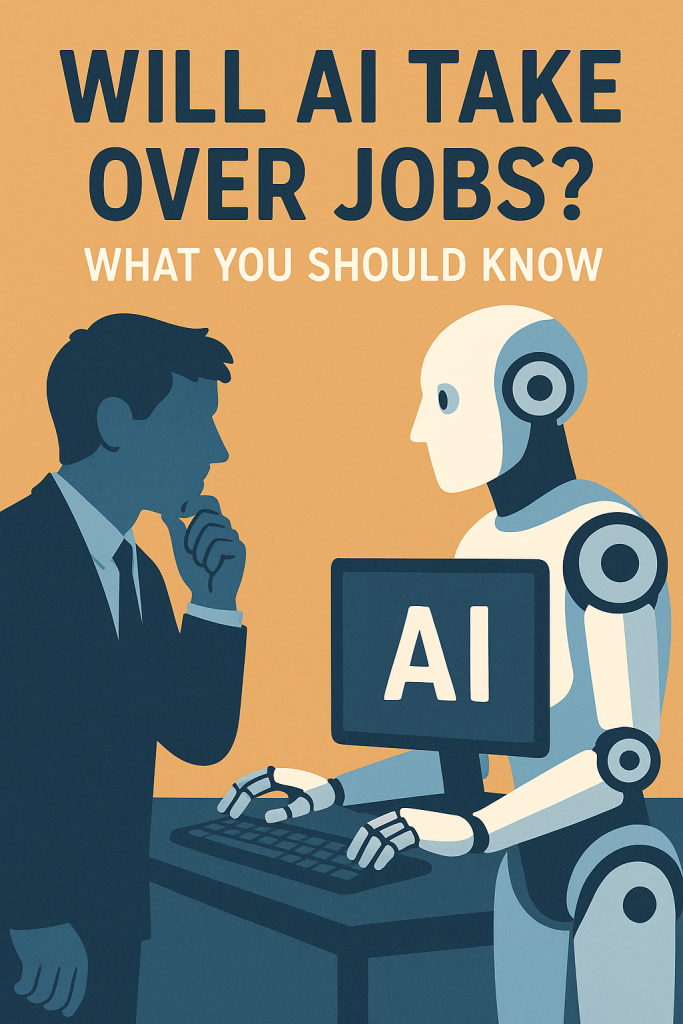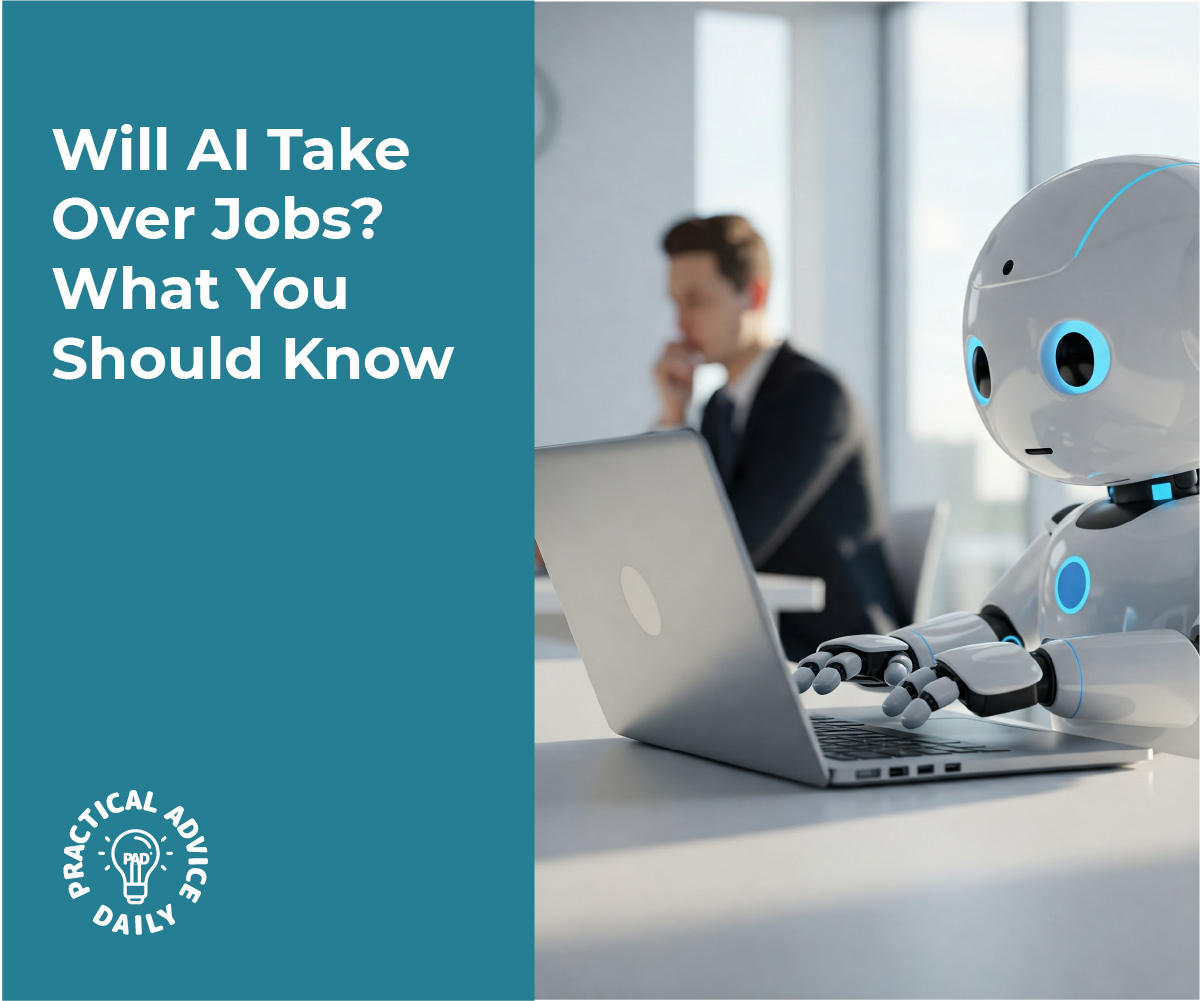You’ve probably heard people say, “AI is coming for our jobs.” That can sound scary—but what does it really mean? This article breaks it down in a simple, friendly way. Whether you’re working, retired, or just curious about the future, we’ll walk through what AI might change (and what it won’t), and how it could even lead to new kinds of work.
You don’t need to be a tech expert to follow along—this guide is for everyone.
Table of Contents
Key Takeaways
- AI and robots are good at doing repetitive tasks, but not everything.
- Some jobs may disappear, but new types of work are also being created.
- Many roles still need human creativity, care, and problem-solving.
- Learning basic tech skills can help you or your loved ones adapt over time.
What Does “AI Taking Jobs” Really Mean?
When people say AI is taking jobs, they usually mean automation—when a computer or machine does a task instead of a person.
Examples:
- A supermarket uses a self-checkout machine instead of a cashier.
- A factory uses robots to assemble parts.
- An office uses software to sort emails or schedule meetings.
AI is especially good at things that are routine and repetitive.

Jobs Most Likely to Be Automated
Some jobs are easier to automate than others. These are jobs where the tasks follow a predictable pattern.
Examples:
- Data entry
- Simple customer service chat
- Manufacturing or warehouse jobs
- Basic bookkeeping
If a task can be written like a recipe, AI can probably do it.
Jobs Less Likely to Be Replaced
AI struggles with tasks that require empathy, creativity, or judgment—things humans are naturally good at.
Examples:
- Teachers and caregivers
- Nurses and doctors
- Artists and designers
- Social workers
- Skilled trades like electricians or plumbers
Even when AI helps with parts of these jobs, humans are still needed to make real decisions and connect with others.
Will There Be New Jobs?
Yes! Just like past inventions created new jobs, AI is opening doors to new opportunities.
Some examples of new roles:
- AI tool testers or trainers (people who teach AI what’s right or wrong)
- Tech support for smart machines
- Jobs in digital marketing, app development, and online education
- Jobs combining tech with human service—like a remote health assistant
Some of these jobs need technical skills, but others simply require being open to learning something new.
What Can You Do to Stay Ahead?
Even if you’re not looking for a new job yourself, these tips can help you or someone you know:
- Stay Curious: Read or watch short videos about tech changes.
- Try New Tools: Voice assistants like Alexa or Siri are a fun start.
- Take a Class: Many community centers offer basic tech skills or job training.
- Support Young Learners: Encourage grandchildren or younger relatives to explore safe tech tools.
You don’t have to learn everything at once. A little knowledge can go a long way.
Final Thoughts
AI is changing how the world works, but it’s not here to “take over” everything. While some jobs will change or disappear, others will grow—and people are still the heart of every workplace.
By staying informed, trying new things, and being open to change, you can face the future with more confidence. And remember, it’s okay to ask questions—understanding AI is a journey we’re all taking together.
Want to learn more? Explore our beginner-friendly articles on how AI helps at home or how to safely try new tech tools.
